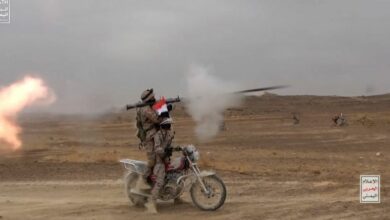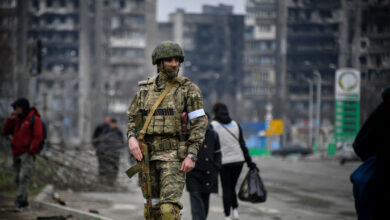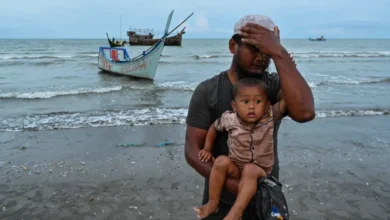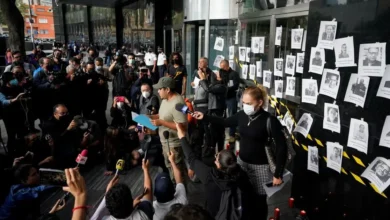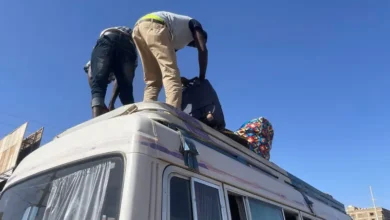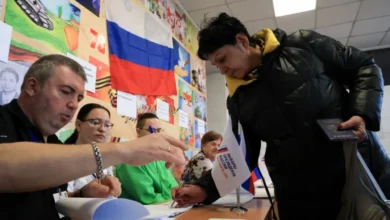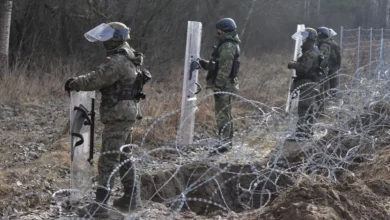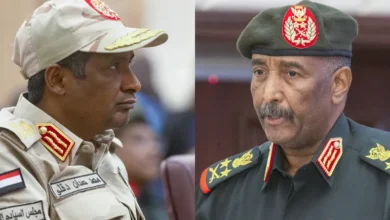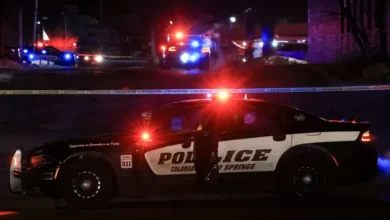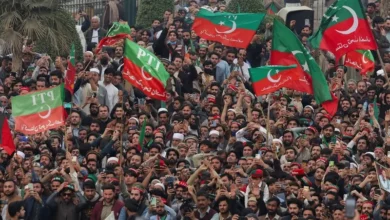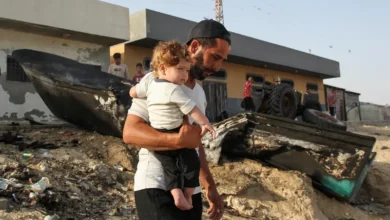Father Paolo: Christian monk who disappeared after trying to talk to ISIL
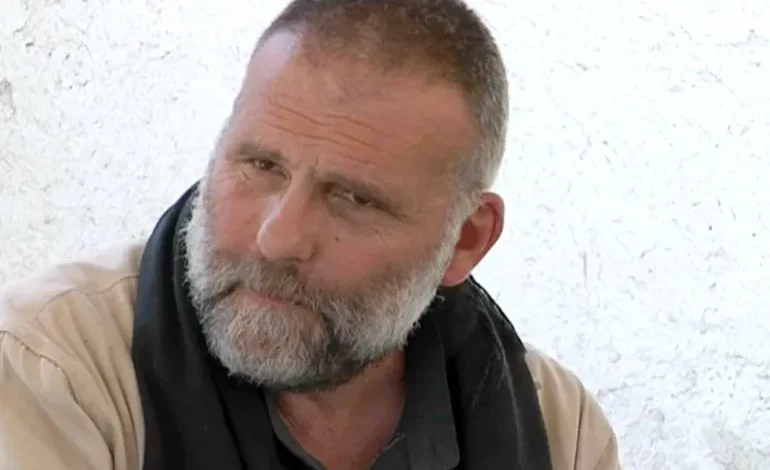
The last time anyone saw Paolo Dall’Oglio, he was on his way to a meeting with ISIL (ISIS).
The Italian priest, who was renowned throughout Syria for his peace activism, had hoped to have a dialogue with the armed group. Instead, he disappeared.
The year was 2013, and the Syrian revolution, originally a popular protest movement in which Father Paolo had been heavily involved, had degenerated into a brutal civil war. It was typical of the priest – a visionary to his admirers and a dangerous idealist to his detractors – to refuse to accept that the moment for dialogue had passed.
The road leading him to ISIL’s headquarters in Raqqa had been a long one. Born in Rome in 1954, the young Paolo Dall’Oglio made his first journey to the Middle East the summer after he finished high school. It was a trip, his childhood friend Francesca Peliti says, which he would later come to consider a “defining moment” in his life.
Mar Musa and Muslim-Christian dialogue
His attraction to Arabic, and Islamic culture blossomed at the same time as his sense of a calling to the Catholic priesthood. In 1975, at the age of 21, Father Paolo entered the Jesuit order.
In 1977, he began university studies in Islam and the Arabic language in Beirut. Peliti, who remembers her friend as kind, determined and argumentative, says she had always expected him to make a “radical” choice.In 1982, while exploring Syria, Father Paolo stumbled across the ancient Monastery of St Moses the Ethiopian (Deir Mar Musa al-Habashi in Arabic). Dating back to the fifth or sixth century, Deir Mar Musa had fallen into disrepair, and Father Paolo took it upon himself to renovate it.
After nearly a decade of work, in 1991, he moved in, along with Yagob Mourad, a local seminarian. At Father Paolo’s insistence, the monastery was dedicated to Muslim-Christian dialogue.
Visitors had been plentiful even before the repairs were complete. Soon they numbered in the tens of thousands every year – Christians and Muslims, Syrians and foreigners.
Writing in the Italian Catholic magazine Popoli, Father Paolo said that some of these Muslim guests came out of curiosity. Others were drawn, he said, by a sense that Christian monasteries – which are mentioned twice, approvingly, in the Quran – were holy spaces for them, too. “Even the monks and the nuns are sacred to their eyes!” the priest enthused.Hospitality on this scale, of course, would not have been possible alone. Over the course of the 1990s, once Father Paolo and Mourad were living in the monastery full-time, others joined them, mainly Syrians and citizens of neighbouring countries, but a number of Europeans, too.
Relations within this budding monastic community were not always easy. His fellow monks and nuns remember Father Paolo as friendly and charismatic, but also stubborn and authoritarian.A particular flashpoint was his openness towards Islam. In a collection of testimonies from those who knew the priest, edited by Francesca Peliti, Mourad remembers their incessant arguments.
“It was not easy for him,” the Syrian writes, “that his fellow monk, the first that had chosen to live with him, did not agree with his vocation and his point of view”.
Mourad – whose grandparents had been forced to flee an anti-Christian campaign in Turkey less than a century before – felt that Father Paolo, a Westerner, did not fully appreciate the extent of religious tensions in the region.Revolution, exile and a disappearance
Inevitably, similar criticisms were raised when Father Paolo became involved with the Syrian revolution. The majority of the church in the country, wary of the perceived increasing “radicalism” of some rebel groups, were supportive of President Bashar al-Assad.
Despite his many decades in the country, fluent Arabic, and network of contacts, many of Father Paolo’s fellow Christians accused him of naivete, of lacking a true understanding of the situation.
Long a proponent of democratic reforms, the Italian monk had been driven to explicit anti-government activism by the regime’s brutal repression of civilian demonstrators. Although his criticism was not limited to the state – Father Paolo was quick to condemn the violence perpetrated by rebels, too – the government soon expelled him from the country.
He spent a year away from the land he now considered his own, telling Italian television that he “would never have believed that exile could be so bitter”. In 2013, he returned illegally, crossing from Turkey into rebel-held territory in the north.
There, on July 29, he vanished.
That was 10 years ago. Since then, reports have surfaced suggesting that the priest has been killed, but no definitive proof has been given. While many of those who knew Father Paolo now doubt whether he has survived, others, his family in particular, continue to hold out hope.
Ziad, an ex-seminarian from Aleppo, says he felt let down by Father Paolo, who he knew of before the war. “Why did he think he knew better than Syrian Christians?” he asks.
“Why didn’t he realise that, whenever there are political problems, it is us, the minorities, that are the first to suffer?”
As it happens, Father Paolo was asked much the same question in an interview with the German magazine Zenith, recorded just before his expulsion from Syria. In response, he distinguishes between “sociological” Christians and Christians as “disciples of Jesus of Nazareth”.
As a sociological group, he says, Christians have interests that they want to protect, just like any other faction; but, as followers of Jesus, they must not remain silent in the face of atrocities.
The many faces of God
Father Paolo’s radicalism was not limited to his politics. Cenap Aydin, a Turkish Muslim and friend of the priest, stresses that he was profoundly interested in Islamic spirituality and convinced that it, too, can be a means for encountering God.He speaks fondly of Father Paolo’s practice of sharing the yearly Ramadan fast with his Muslim neighbours, and of his fascination with Sufism, a mystical tradition within Islam.
In his 2011 book, In Love with Islam, Believing in Jesus, Father Paolo speaks of “double belonging”, of identifying with both Christianity and Islam. He also affirms the theological value, from a Christian standpoint, of the Prophet Muhammad’s pronouncements.
What remains, 10 years on, of Father Paolo’s unique vision?
It’s easy to be pessimistic. The revolution the priest supported sparked a civil war that devastated his beloved Syria. Many members of the Syrian church, which Father Paolo worked so hard to integrate into, have, given his political exploits, turned their backs on him and his legacy. And the war has frayed the bonds between Syria’s various ethnic and religious communities, so dear to Father Paolo, more than ever.
Paola Pizzo, a professor of Middle Eastern History at the University of Chieti in Italy, acknowledges that the war “has torn apart the fabric of civil coexistence in the country” but she is hopeful.
“Communities, including religious ones, are more isolated and separated from one another than before. But the examples of Mar Musa and Father Paolo are there to say that paths of peace and dialogue are always possible.”
